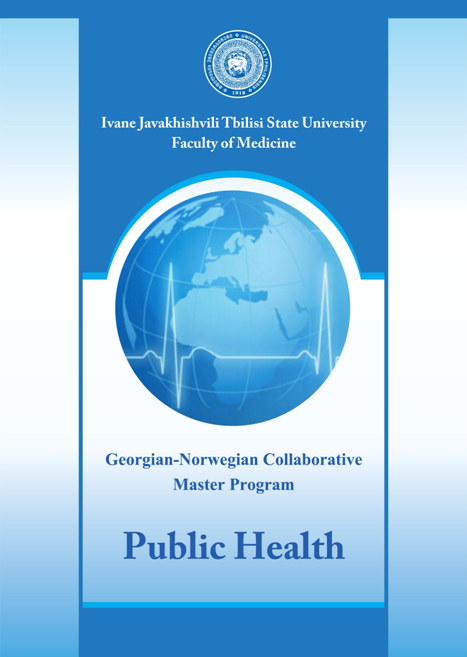
The overall aim of the course is to provide knowledge about the incidence and causes of injuries and to understand the main principles of injury prevention methodology and approaches.
- Teacher: Nino Chikhladze
- Non-editing teacher: Eka Burkadze
- Non-editing teacher: Nato Pitskhelauri
- Teacher: Ekaterine Ruadze

კურსის მიზანია სტუდენტებს მიაწოდოს ცოდნა ტრავმატიზმის ინციდენტობისა და მიზეზების, ტრავმატიზმის პრევენციის მეთოდოლოგიისა და მიდგომების შესახებ.
- Teacher: Nino Chikhladze
- Non-editing teacher: ketevan akhobadze
- Non-editing teacher: Eka Burkadze
- Non-editing teacher: Nino Chkhaberidze
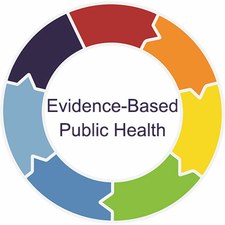
The aim of the course is to give to the students deep and systematic knowledge of the evidence-based public health. Teaching course is designed to introduce to students the importance of the role of scientific evidence-based public health in public health protection. To teach the fundamental principles of public health, the Public Health essence in the modern world, its functions, objectives and scope. To teach community health and needs assessment. The course will provide student with the latest information on the health determinants in defining (family, education, environmental factors, social status and other); Also, global health challenges. Teach graduate students how to gather, systemize, review and analyze statistical data about morbidity and mortality of population. Teach students the analytical methods used in healthcare. Based on practical examples to teach graduate students the rules of evidence-based public health plans, programs and projects.
- Teacher: ლაშა ლორია
- Teacher: ნატა ყაზახაშვილი
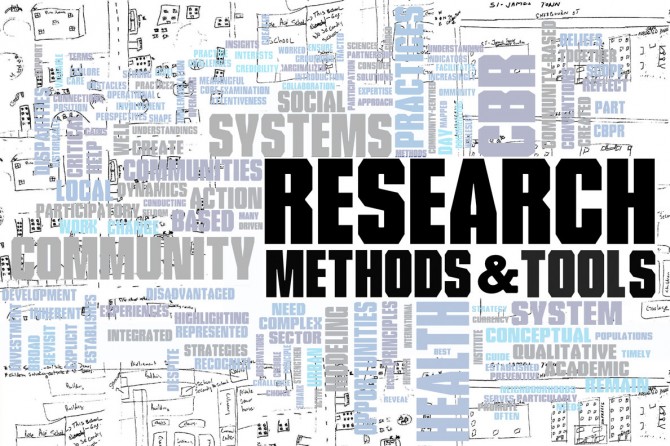
The overall aim of the course is to further enhance analytical skills through translating obtained research methodology skills into scientific writing. The course will specifically contribute to the practical application of research methods and development of scientific writing and presentation skills. The final product of the course will be research manuscript prepared by students.
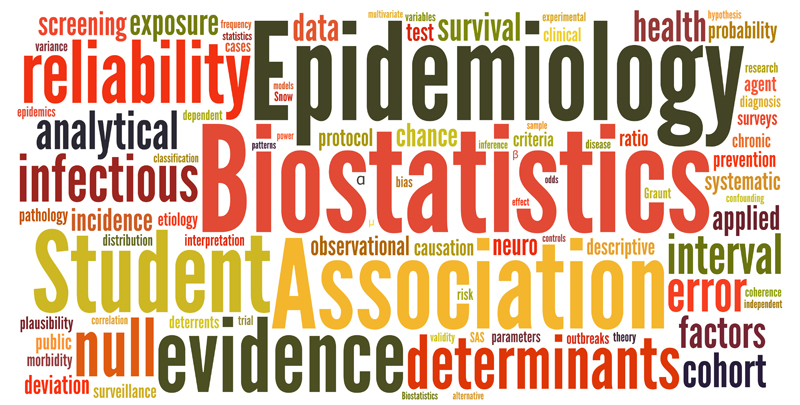
The aim of the course is to equip students with deep knowledge and skills to understand the fundamental principles of epidemiology and statistics, such as measures of disease occurrence, indicators of population health, and fundamental principles of outbreak investigation, appreciation of basic statistical concepts (confidence interval and p-value). This course is the preparatory for Epidemiology and Biostatistics II

The overall aim of the course is introduce students to Health promotion theory and practice and explore conceptual frameworks of Health promotion

The aim of the course is to give the students the newest information about main topics of health policy, management, economics and principles of healthcare priorities. Teaching course considers economical aspects of health and healthcare systems, mobilization, gathering and allocation of resources. The goal of the course is to realize significance of efficacy and fairness in the process of sharing resources
- Teacher: George Lobzhanidze

The aim of the course is to give to the magistrate deep and systematic knowledge of the maternal and child health policy and programs. Teaching course on maternal and child health care is one of the most important part of the global health policy component. During the course, students will be provided the knowledge about the basic principles of maternal and child health policy development. For this purpose, the students will be introduced with information about national policies in maternal and child health care in the World Health Organization, the Center for Disease Control and the World's developed countries. Teaching course will include studies of maternal and child health issues on examples of developed and developing countries too. During the course, will be considered programs which were approved by international organizations and many countries, as well as very important intervention and effective actions for maternal and child healthcare, such are early detection screening programs for women's and children's diseases, modern antenatal care program, immunization, breast feeding support, integrated management of childhood Illnesses (IMCI) and other programs. During the course of students will study: demographic and socio-economic development trends in the world; Women and children, as the high-risk population groups; Maternal and child health care in the field of basic concepts and definitions, reflecting the state of maternal and child health indicators; Maternal and child health care, as a global policy priorities, the Millennium Development Goals; Maternal and children's rights, justice and maternal and child health issues, family, marriage and reproductive health issues, access to health services, including reproductive health services and many others.
- Teacher: ნატა ყაზახაშვილი

The aim of the course is to equip students with the knowledge to understand, conduct and evaluate the epidemiological research and to appreciate the role of scientific evidence in public health
- Teacher: გიორგი ჩახუნაშვილი

This Course allows students to learn social, economic, and political determinants of health care systems and the evolution of various systems around the world over the last few decades. Students will compare theories of health policy and priorities, models of government intervention in providing health care and insurance, systems of remuneration, financing, planning, manpower, education and training. Students will review the major determinants of health status and commonly used health indicators;
The roles of different types of international health organizations will be defined and examined, including financing institutions, implementing institutions, research entities, technical support entities, coordinating bodies, and private and non-governmental voluntary organizations.
The emphasis of the course will be on health management strategies used in
different countries and healthcare systems to mobilize, allocate, and maintain resources to improve the health care status and delivery systems. The students will analyze and relate the competencies needed to be an effective healthcare manager in a multicultural and global environment to the effective management of health services in his or her community.
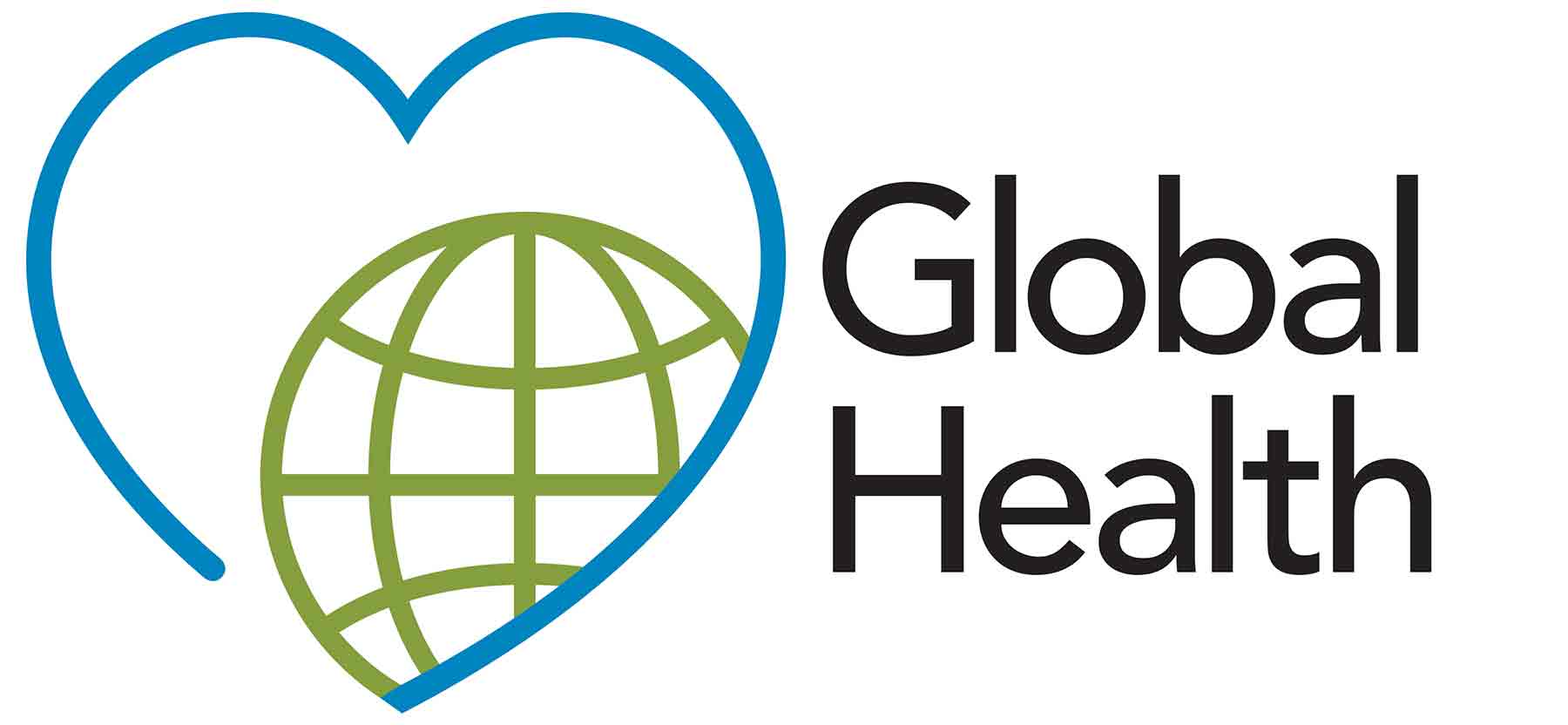
Learn about the main determinants for health; know how health can be measured and what the main indicators for health and illnesses are; get an understanding of population groups that are at increased risk of poor health; get acquainted with the models and structures for health care around the world; learn global health vocabulary, the basic methods used to assess global health.

At the end of the third semester student will choose the topic of master thesis from the proposed list of research topics at the Department of Public Health and recruit supervisor. Instructions will be given to students during the 4th semester, group work and individual instructions will be organized once or twice per month; The schedule will be announced in advance. Primarily student will design project description, which should include a problem statement, background, the main aim and objectives, research methods, ethical issues, an overview of the activities in the project, timetable for the project and relevant sources of material. First group work will be organized in the beginning of the 4th semester. All students have to present project description to the Faculty. After approval of the project description student will start to conduct their research project. Thesis requires both written paper and an oral defense. The length of the paper should be 40-60 pages (not including references), font ,,Times New Roman’’, size 12, spacing 1,5. Template for master’s thesis cover page can be found at the Department of Public Health. Master Thesis should include problem statement and research question, background, the main aim of the research and objectives, literature review, research methods, results, discussion, conclusion, references (Vancouver or Harvard references styles are recommended).
The deadline for presenting the paper version of master thesis will be announced at the beginning of 4th semester. Students should present paper version (2copies) and el. version (on CD Room) of thesis at the TSU Faculty of Medicine Academic Department.
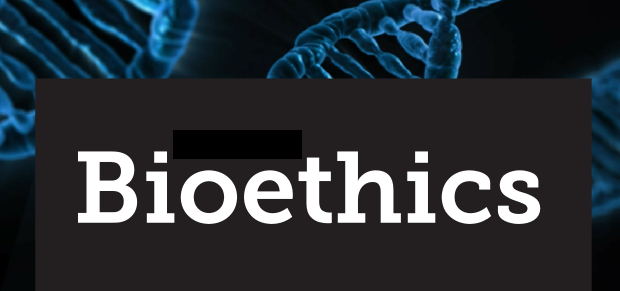
The overall aim of the course is to introduce students to Bioethics and Human rights in Biomedicine and public health through ethical reasoning and discussing contemporary ethical dilemmas in Biomedicine and public Health.

